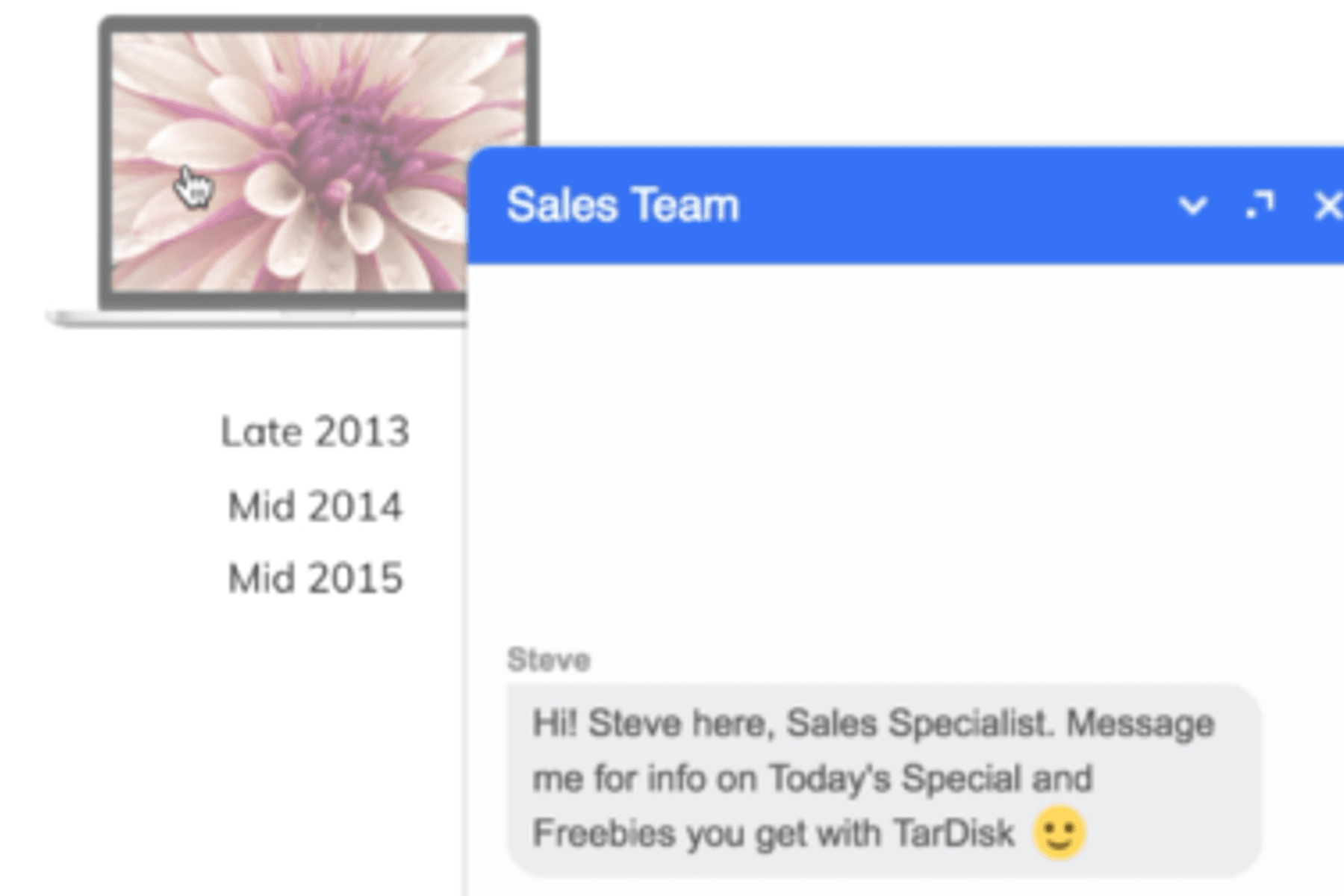Pierce Schiller had a successful startup, a great product, and climbing sales. Not much there to suggest a major pivot was in his future.
But Schiller had something else going for him too: an open mind. A mind that was flexible enough to listen when a little voice said maybe the breakthrough value item his company TarDisk had created wasn’t its product: a popular plug-and-play, hard-drive-expanding modular chip for MacBook computers.
“I asked myself: ‘What is the core expertise that I had developed here through selling this product?’” Schiller says. “Was it the engineering ability to go out and build another variation of the thing we had already built? Or was it the ability to go out there and sell this thing?”
And that’s how SparkSales was born.
Originally from Queens, New York, Schiller moved to Boston in 2008 after earning a degree in biological engineering at SUNY Binghamton. He worked for a couple of startups, then for Harvard’s Office of Technology Development. In 2012, he was accepted into Harvard Business School.
TarDisk (the name is an homage to the TARDIS, the fictional time machine/spacecraft from the BBC’s “Dr. Who” television series) started out as a response to a couple of problems. First, like a lot of students, Schiller wanted to figure out a way to get through HBS without accumulating a pile of debt. Second, he was frustrated with how hard it was to upgrade the memory on his MacBook.
“I had run out of storage space on this new computer that I had spent just a god-awful amount of money on and I was just looking for a way to be able to solve a problem that I had,” he says. “And through solving that problem I realized that other people had that problem too, and thought hey, well maybe there’s a little market for this thing.”
It turns out there was. Schiller started building a business around developing easy-to-use, plug-and-play chips that could extend a laptop’s hard drive space. During his fourth semester at HBS, he started hanging out at the i-lab, where, he says, he “met a bunch of rock-star interns” who helped him launch TarDisk.
The product — a memory chip with up to 256 gigabytes of storage, encased in a brushed-aluminum housing that slides into a MacBook card slot — struck a cord with Mac users. The company went on Kickstarter in February 2015 and raised $127,838 from nearly 1,000 backers. The campaign was fully funded in less than 5 days.
After graduating that spring, Schiller and TarDisk moved over to the new Harvard Launch Lab. There they continued developing the product and perfected what he calls TarDisk’s best feature — embedded software that allows the user to simply plug the chip in and do nothing else. The company has flourished, he says, selling “thousands of TarDisks” (at anywhere from $149 to $399 each, depending on the amount of memory).
Yet for Schiller, the story of the next two years might also have been: “Things They Don’t Tell You When You Enter the Hardware Manufacturing Space.”
“To be honest — don’t tell anybody — I didn’t realize how difficult it was going to be to build a hardware product,” he says. There’s been a constant flow of challenges: changing Macbook configurations, manufacturing and supply chain issues, tricky inventory and demand forecasting, he says, “either you have too much product or you don’t have enough product …”
But from that frustration, an epiphany emerged. It began with a little popup chat box, the one that appears at the bottom of the screen when you go to many e-commerce websites these days. After it does, a customer service rep usually asks “Hi. Can I help you?”
In the course of setting up an online sales operation for TarDisk, Schiller found that while the chat box was helpful for customer service, it was even more effective as a tool to close sales. When TarDisk injected human intervention through the chat box later in the online sales process — closer to checkout when the potential customer was more fully engaged — sales shot up.
“You have the opportunity to either upsell them, to figure out their needs, and to basically help them understand why it is that the product you are trying to sell them will help solve the problem that they are having,” he says.
Schiller says chat box-based sales interactions have another advantage over, say, phone sales or straight online sales. Every keystroke of a chat-based sale can be recorded, archived, and analyzed, bringing big-data analytics into play.
“The beauty of chat is that everything is written in real time, and you can run data analytics on it,” he says. “That lets us build models that can predict whether we are trending toward a sale or away from a sale.”
Those models allow the sales force to receive real-time feedback on how a chat is trending. To help close the sale, the software TarDisk developed can suggest particularly effective pitches the sales agents can use for that customer, as well as deal sweeteners such as discounts and giveaways.
“It became very clear to me that there was this other very interesting business model — beyond just selling the hardware — that we had become very good at, that we should look to explore,” Schiller says.
That business model is now a thriving business. Last spring, Schiller incorporated SparkSales, which employs a large team of freelance chat agents who handle online sales for TarDisk and six other companies — including two others at the Launch Lab. There’s even a 2.0 version — Schiller’s next project is Librium.com, an expansion of the SparkSales freelance sales force model to an entire freelance marketplace that incorporates blockchain technology for transactions.
The current murky regulatory environment surrounding raising capital through the blockchain is a concern, Schiller says, but the important thing is to keep looking up and thinking ahead, even as you’re grinding away toward success.
“The entrepreneurial mindset, it’s both a blessing and a curse, because you’re constantly recognizing opportunity and more things to go after and chase,” he says. “But you also have to make sure that you slow yourself down to actually go out there and build value around your ideas.”





